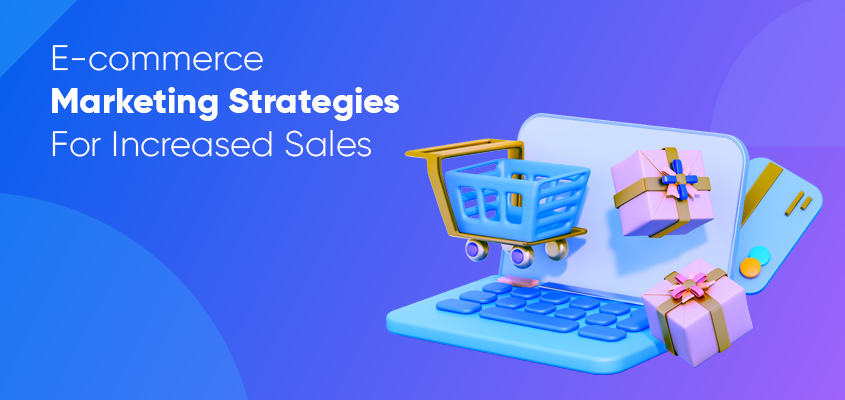
In today’s fast-paced digital landscape, e-commerce presents both incredible opportunities and daunting challenges for businesses. With millions of products just a click away, how do you ensure that your offerings stand out amidst the noise? The answer lies in the power of digital marketing.
As an e-commerce entrepreneur, navigating the digital marketing landscape can feel overwhelming at times. That’s where a reputable digital marketing agency comes into play, offering guidance and expertise to help you navigate the complexities of online marketing and achieve your business goals.
This blog will explore proven digital marketing strategies to help you increase sales and propel your business to new heights. From social media marketing and search engine optimization (SEO) to email marketing and influencer partnerships, we’ll uncover the secrets to success in the ever-evolving digital marketplace.
Social media platforms have revolutionized the way businesses connect with their audience and market their products. From Facebook and Instagram to Twitter and LinkedIn, these platforms offer a treasure trove of opportunities for e-commerce marketing.
By creating compelling content, engaging with your followers, and leveraging targeted advertising, you can effectively promote your products and drive traffic to your e-commerce store.
For instance, utilizing Instagram’s shopping features allows you to showcase your products directly on the platform, making it easier for users to discover and purchase them with just a few taps.
Similarly, Facebook’s robust advertising platform enables you to target specific demographics, interests, and behaviours, ensuring that your ads reach the right audience at the right time.
Search engine optimization (SEO) plays a crucial role in driving organic traffic to your e-commerce website. By optimizing your site’s content, meta tags, and backlink profile, you can improve its visibility in search engine results pages (SERPs) and attract more potential customers.
Focus on targeting relevant keywords related to your products or industry and creating high-quality, informative content that resonates with your audience. Additionally, optimizing your product pages with compelling descriptions, high-quality images, and customer reviews can enhance their visibility and persuade visitors to make a purchase.
Remember that digital marketing is an ongoing process, and staying abreast of the latest SEO trends and algorithm updates is key to maintaining your website’s search engine rankings.
Email marketing remains one of the most effective digital marketing channels for e-commerce businesses. By building a subscriber list and sending targeted, personalized emails to your customers, you can nurture relationships, promote new products, and drive sales.
Segmenting your email list based on user behaviour, preferences, and purchase history allows you to tailor your messages for maximum relevance and engagement. Consider implementing automated email workflows, such as welcome sequences, abandoned cart reminders, and post-purchase follow-ups, to streamline your marketing efforts and drive conversions.
Additionally, incorporating compelling visuals, enticing subject lines, and clear calls-to-action (CTAs) can help improve the effectiveness of your email campaigns and encourage recipients to take action.
Influencer marketing has emerged as a powerful digital marketing strategy for e-commerce brands looking to reach new audiences and increase sales. By partnering with influencers who align with your brand values and target demographics, you can leverage their credibility and influence to promote your products authentically.
Whether it’s sponsored content, product reviews, or social media takeovers, collaborating with influencers can help you amplify your brand message and generate buzz around your products.
When selecting influencers to work with, focus on relevance, engagement, and authenticity rather than just follower count. Micro-influencers with smaller but highly engaged audiences can often yield better results than macro-influencers with large but less engaged followings.
Additionally, be transparent about sponsored content and ensure that influencers disclose their partnerships with your brand to maintain trust and authenticity with their audience.
Last but certainly not least, delivering exceptional customer service is paramount for e-commerce success. In the digital realm, where face-to-face interactions are limited, providing prompt, personalized support can make all the difference in building trust and loyalty with your customers.
Whether it’s through live chat, email, or social media, make it easy for customers to reach out with questions, concerns, or feedback and strive to resolve their issues promptly and effectively.
Remember that digital marketing isn’t just about acquiring new customers; it’s also about nurturing existing relationships and fostering repeat business.
By prioritizing customer satisfaction and going above and beyond to exceed their expectations, you can turn satisfied customers into loyal brand advocates who not only make repeat purchases but also recommend your products to others.
